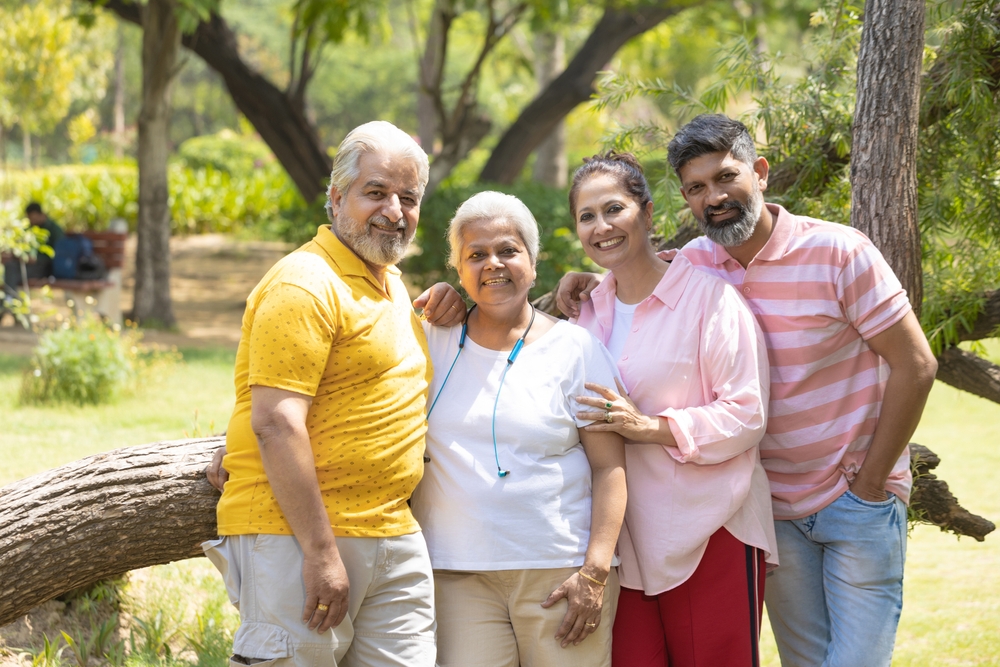The main focus is on health. How can we influence this desire? What can we do?
First, we have to look at the question of which factors play a role. These include the obvious ones, such as good genes and a solid and effective health system. These are probably the first things that come to mind when asked about the main factors for longevity. In addition, a good diet, regular exercise, good sleep, not smoking, moderate drinking, a normal weight and a relatively stress-free life.
But are there other influences that play at least an equally important, or perhaps even more important, role?
What makes us happy and when do we feel particularly good?
Studies have shown that people with a strong social network and good friendships tend to live longer. In fact, a study published in the PLOS Medicine journal revealed that people who have strong social ties are 50% more likely to survive over a given time period than those who are socially isolated.
Our social contacts are not just a nice way to pass the time, but a fundamental component of our well-being and longevity. They not only affect our psyche, but also our physical health. Studies have shown that people with strong social ties have a lower risk of heart disease, high blood pressure, diabetes and even certain types of cancer. The presence of social relationships appears to strengthen the immune system and improve the body’s defenses against disease. This is due to the release of hormones and neurotransmitters that have an anti-inflammatory effect on the immune system.
Social interactions increase the production of hormones such as oxytocin, serotonin and endorphins, which are known as “happiness hormones” and give us a feeling of well-being and satisfaction.

Everyone knows the effects of meeting good friends on the psyche. It is important to stress that mental well-being depends not only on quantitative aspects of social relationships, but also on their quality. It is not just about having many contacts, but also about maintaining deep and meaningful relationships. A close bond with a few people can provide a greater sense of satisfaction and well-being than superficial relationships with many people. Laughing together, talking, being happy and content. Forgetting stress and anxiety, as well as letting go of physical tension. All of these promote mental well-being. You have a feeling of belonging, support, recognition and being seen.
The emotional support and understanding you get from social contacts can help you get through difficult times and overcome mental challenges.
Studies have shown that people with a strong social network have a lower risk of depression, anxiety and other mental disorders.
People with a wide range of social contacts often have a healthy lifestyle. They tend to be physically active on a regular basis, maintain a balanced diet, and have fewer unhealthy habits such as smoking and excessive alcohol consumption.
The presence of friends or family members can create a positive social norm and encourage us to make healthy choices.

The importance of maintaining and nurturing friendships.
Building new relationships and making new friends is crucial to our social well-being and longevity.
Being open, approachable, and authentic, discovering common interests, investing time, and offering support can help you successfully build new relationships. Be patient and give relationships time to grow. Use these tips to make new friends and expand your supportive social network.
It takes courage and self-drive, especially if you’re not that extroverted, to build a circle of friends. Friends are most likely to be found in the environment or activity you feel comfortable in. Take a class, join a club, or get involved in the community. Wherever you find people with common interests, you’ll usually find friends.
In a world where digital communication is increasingly replacing face-to-face interaction, it is important to make a conscious effort to create face-to-face encounters. Shared activities, regular meetings and open communication are crucial to maintaining a supportive and fulfilling social environment.
Building relationships is important, but nurturing existing relationships is just as important. Relationships require continuous work and attention to stay strong and healthy. That means spending time together. Either sharing activities, meeting regularly or just going out for coffee together.








